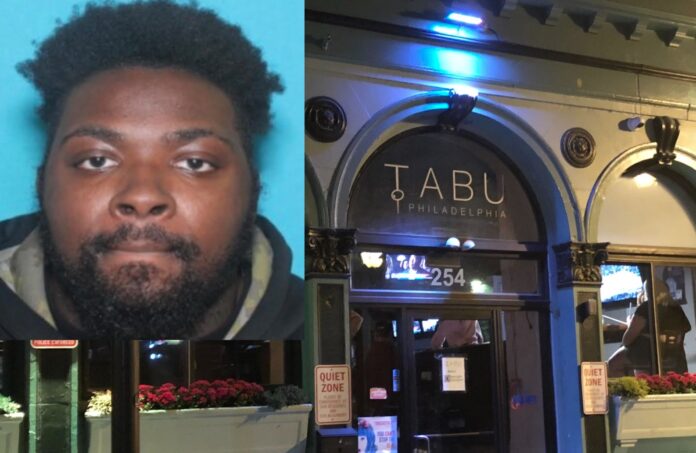
The high-profile deaths of Naasire Johnson and Eric Pope won’t be reported as hate crimes, despite calls for such reporting by multiple advocates, a police official confirmed last week.
Johnson, 20, allegedly was shot in the neck by Kylen Pratt, his closeted lover, on Feb. 18, 2022. Then, Pratt allegedly transported Johnson’s body to Glendinning Rock Garden in Fairmount Park, where he set it ablaze on two consecutive evenings.
When a passerby discovered Johnson’s corpse on Feb. 20, it was burned beyond recognition. Investigators had to obtain DNA from the corpse’s spleen to determine whether it was a male or female.
Four months later, Pratt was arrested at his North Philadelphia residence. Authorities believe Pratt lived a double life and killed Johnson to hide their intimate relationship. However, Pratt denies that he knew Johnson. He’s charged with first-degree murder and related charges.
Initially, Philadelphia police reported Johnson’s homicide as an anti-Gay hate crime to the Pennsylvania State Police, which compiles such statistics and shares them with the FBI for inclusion in the FBI’s Annual Hate Crimes Report.
However, for reasons that remain unclear, the hate-crimes report was withdrawn.
Homicide Capt. Jason Smith indicated to PGN he wasn’t aware of the initial hate-crimes report for Johnson’s homicide. But Smith said he doesn’t believe Johnson’s homicide is a hate crime.
“I am sensitive to this stuff,” Smith said, in an interview. “If I thought this was a hate crime in any way shape or form, I would absolutely report it as such. We need something more concrete. If he [Pratt] had said something to the effect, ‘I’m gonna kill that [faggot],’ I would report it as a hate crime in a heartbeat.”
Pope, 41, was punched in the face by former Tabu Nightclub bouncer Kenneth Frye after being shoved out of Tabu on April 16, 2022. He died a week later. Frye has been charged with third-degree murder but maintains his innocence. Advocates say Pope posed no threat to Frye and was targeted due to his LGBT status.
Initially, Philadelphia police reported Pope’s homicide to the state police as an anti-Gay hate crime. But for reasons that remain unclear, the hate-crimes report was withdrawn.
Smith said investigators haven’t presented him with information that Pope’s sexual orientation was a motive in the crime. “They [Pope and Frye] were involved in an argument,” Smith said. “There were choice words going back and forth. I don’t think it had any thing to do with the person’s sexual orientation.”
Smith added: “I received no information from my investigators that leads me to believe either case was a hate crime or bias incident. The information we have at this time is not gonna be enough to deem these as being hate crimes or bias incidents.”
Smith said investigators who provide hate-crimes information to him are sensitive to LGBT issues. But the captain acknowledged he’s not aware of any openly-LGBT investigators who provide such information to him.
At some point, the FBI became involved in the Johnson matter. On Aug. 12, a state-police spokesperson wrote to PGN: “In some cases, like the Johnson case, we defer to the FBI’s judgment. In this case, the FBI made the determination that the incident was reported correctly without any bias.”
But an FBI spokesperson wrote to PGN on Aug. 12: “While FBI guidance is sometimes provided to a state Uniform Crime Reporting (UCR) program or directly contributing law-enforcement agency, it is ultimately the responsibility of the investigating agency to determine whether a criminal incident was motivated by bias and to report a bias-motivated incident to their state UCR program and/or the FBI.”
It’s unknown whether the FBI became involved in the Pope matter. An FBI spokesperson said she couldn’t comment on a specific case.
Although Pennsylvania doesn’t have an LGBT-inclusive hate crimes law, a federal LGBT-inclusive hate crimes reporting law has been in effect since 2009. As of presstime, a Philadelphia police spokesperson hadn’t replied to a question regarding whether police ever reported a homicide as an LGBT-related hate crime (other than the Johnson and Pope reports, which were withdrawn).
Justin F. Robinette, an attorney and local civil-rights advocate, said the Johnson and Pope homicides are hate crimes, in his opinion.
“It doesn’t surprise me that both homicides aren’t being considered hate crimes given the history of anti-LGBT police bias and brutality exhibited toward this community,” Robinette said, in an email. “In the case of Naasire Johnson, just because the defendant had a relationship with the victim doesn’t exclude the possibility that the homicide could have been motivated, at least in part, by the defendant’s hatred of gay people. Gay and bi men can hate other gay people, and they can hate themselves. Those who say they love Trans people also use violence toward their partners when they worry the relationship is going to be revealed. If hate was a motivating factor in the homicide, then it should be reported as a hate crime. Not doing so obscures what happened and, as a result, the violence people commit toward members of this community is allowed to continue.”
